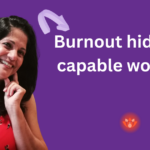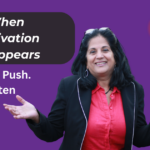Panic attack symptoms can affect us all. It has been said that panic attacks can cause your heart to race and your breathing to become shallow or frantic. This article’s subject is how to stop panic attack symptoms and 12 ways to cope. Emma Raducanu withdrew from her Wimbledon tennis match, saying, ‘I could not keep my composure and breathing in check. She suggested that she was feeling overwhelmed, which was caused by the accumulation of stress & expectation.
John McEnroe, a previous tennis champion, remarked about this incident, ‘it appears it got a bit too much for Emma Raducanu, which is understandable. He then referenced Naomi Osaka, the four-time major champion who pulled out of the previous Grand Slam tournament, the French Open. She had also missed Wimbledon because she said she needed a mental health break. Naomi Osaka revealed that she suffered from panic attacks, waves of anxiety and depression with all the attention she received and the expectation.
How to stop panic attack symptoms, and why do they happen?
A panic attack is a sudden feeling of anxiousness for no apparent reason. It can be caused by severe stress: a job loss or the death of a loved one. Symptoms of a panic attack include: Sweating, feeling cold or numbness or shivering and loss of control of the body. In addition, there is an inability to control negative thoughts or feelings, quickening heart rate and rapid breathing.
The question here in this article is: how to stop a panic attack? Where can you go for support if you are struggling with a panic attack? What are the signs of a panic attack, and what do you need to do if you experience one? What are the symptoms of a panic attack? What does anxiety feel like? How can you get support if you are struggling with a panic attack? How can you tell if your anxiety is under control or if you need to seek support? What can you do if you feel overwhelmed by your stress?
What to do when you have a panic attack?
Steps that may help are taking a warm shower, counting to ten, and practising a deep breathing exercise: in through the nose, out through the mouth helps to slow the heart and calm the body. If you don’t panic, so much so that you feel you cannot speak, move, or even move your eyes, go to a quiet room where you are free from other people. Mindfulness and meditation are great ways to build long-term resilience to the waves of panic. For example, trying not to focus on what you are worried about or feeling anxious about, but distract yourself by going for a walk or watching something funny.
How to Stop Panic Attack symptoms: 12 Ways to Cope:
- Be aware when you have a panic attack
- Practice deep breath exercises
- Try a grounding technique to feel calm by taking some deep breaths
- Visualisation technique: seeing the goal as already complete in your mind’s eye
- Use a gradual muscle relaxation technique to calm yourself down
- Focus on something else: like watching a funny movie or listening to music
- Go for a walk, run or jog
- Try a simple yoga from Youtube
- Meditate: try to do this even if you find it difficult to focus
- Change the negative thoughts to positive thoughts: Get the support of a therapist
- Take control of how you perceive your panic
- Make time for self-care routines: relaxing bath with some incense, doing something special you love and many more.
Conclusion
Panic attacks can feel overwhelming. It can be triggered often by intense stress, divorce, or the loss of a loved one. Anxiety and panic attacks causes are generally linked to a combination of factors. The best we can do is keep them as brief as possible, remain calm, and speak with someone who can help. If you have had or are having panic attacks, remember that if they keep happening, find a way of stopping them. So, How to Stop A Panic Attack: 12 Ways to Cope.
If any of these strategies resonate with you, Call me or email me hello@andreaasmith.com and read more about Tips for dealing with stress & anxiety.






